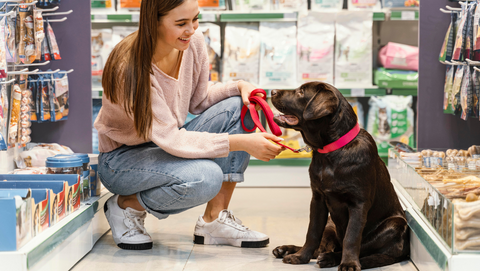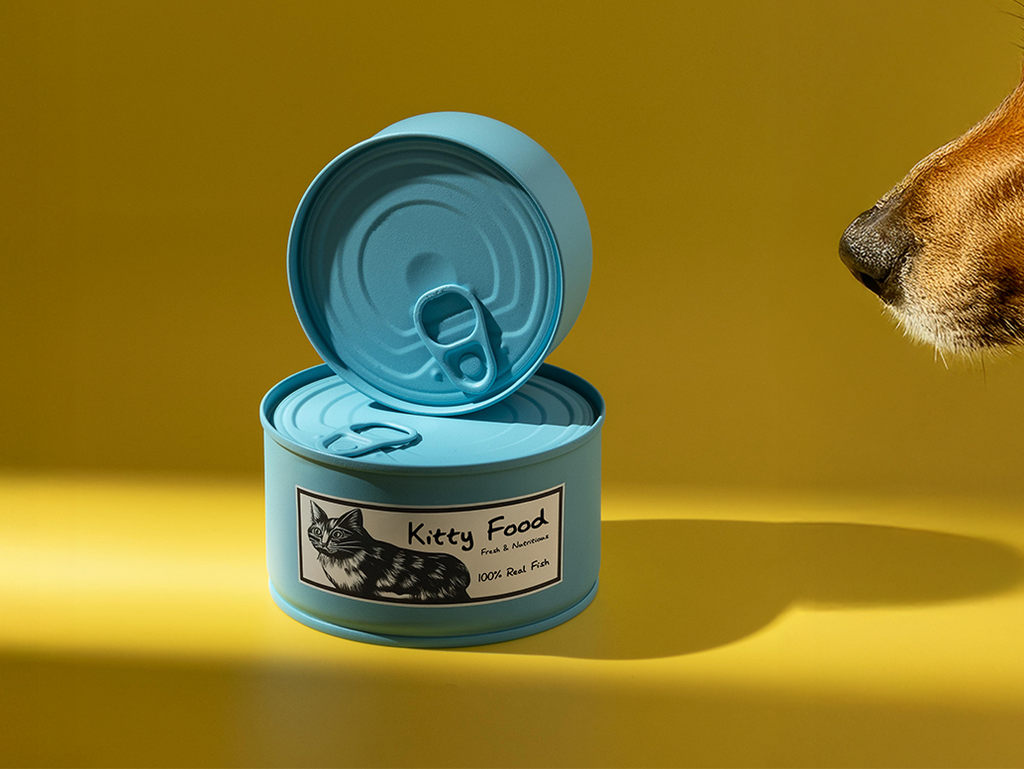How Much Does a Dog Cost?

Are you thinking about adding a furry forever friend to your life? This is a major decision, and if you have never cared for a dog before, you might be surprised by all of the costs involved. It is easy to overlook some of the expenses when preparing to bring home a four-legged family member, so read on to find out all the costs that you might encounter.
While costs vary a lot from dog to dog, they can easily become a major factor in a family’s budget. Often, prospective dog parents seriously underestimate the actual cost of a dog–which can be as much as 2-10 times more expensive than first-time pet owners expect. [1]
It can be hard to tell exactly how much does a dog cost. Many expenses can be accurately estimated, but some items, such as health care, can vary widely.
What Expenses Are Involved in Bringing a Pup or Adult Dog Home
There are a number of expenses you will incur even before you bring your dog home for the first time. You’ll have to get your home ready and stock up on some dog essentials.
Doggy-Proofing Your Home
It’s important to prepare your home for the new four-legged family member. If you get a big or active dog, you might need to fence in your backyard so they can burn off all that extra energy. Adding a doggy door so your dog can go in and out freely might be nice, too. If there are areas in the house where you do not want your dog to go, you can buy barriers to keep them out. Baby gates work well! You will also want to check throughout your home that there are no toxic cleaners, pesticides or chemicals that your dog can get into.
Cleaning Supplies
All dogs, no matter how big or small, old or young, can have accidents. So you may want to have some cleanup supplies on hand, like:
- Deodorizer
- Disinfectant
- Rags or Towels
- Stain Remover
- Wet Vac or Carpet Shampooer
Don’t hesitate to ask the breeder or shelter staff what cleaning products and brands that they recommend.
Initial Fees
Picking out a cute companion is a ton of fun! But once you’ve made your decision about which furry friend you want to bring home, the next step is paperwork and bills. You should be prepared to open your wallet for:
- Pet fee if you have a landlord
- Adoption fee/Breeder fee
- Spay/Neuter fee
- Microchip implant fee
- Dog License from your state, territory, or local government
- Effects on your homeowner’s insurance
Initial costs can add up to thousands of dollars, especially for one of the more expensive breeds. But if you are giving a forever home to a dog from your local shelter, you can expect the cost to be a few hundred.
If you take advantage of promotions offered by shelters, you may be able to pay a reduced fee or have certain fees waived altogether, making adoption much more affordable.
Things Your Doggo Will Need
Some things are necessary to have, while others are optional and will vary based on the age, breed and training of the dog.

Necessary:
Optional:
- Toys
- Bed
- Crate
- Grooming supplies
- Potty pads
Some of these will last for years, but others will need to be replaced regularly. Some, like toys, you may be able to make yourself, investing time and love instead of money toward the future happiness of your furry pal.
Feeding Your Dog
All dogs must eat, and this is one place where size really makes a difference. When you have picked the dog, talk to the person you are getting them from. What food are they feeding the dog? If you can, start with the same dog food, and if you want to change it, transition gradually from the old to the new food over a couple of weeks. This can relieve potential discomfort in your doggo’s digestive tract.
Basic Food
You can choose from healthy dog dry food, dehydrated, canned, and nutritious raw food options. Each one can provide the nutrients that your dog will need to live a long and happy life, though your dog might show a preference for one.
Read the label of the food closely. Check the ingredients and try to avoid brands that contain ingredients that you don’t recognize or can’t pronounce. Many cheaper brands add chemicals to color or preserve the food–this is good for them, but not your dog.
You need to also look at the country where the food was manufactured. Some countries have few, if any, regulations or enforcement on the production of pet food. You are careful about what you eat and where it comes from, so you should be just as concerned as the food you are feeding to your furry friend.
When it comes to how much to feed your dog, it varies a lot from dog to dog and breed to breed. Food manufacturers make recommendations based on weight, but you can always consult your vet or a veterinary nutritionist. They can give you an approximate number of calories based on your dog’s breed, age, and activity level.
Treats
Not only is it fun to see how excited your dog becomes when you break out the treats, but also treats are a crucial tool for training your dog to behave and perform tricks.
Just like with their main food, check to make sure that there are no harmful chemicals in the treats and that they are made of quality ingredients. And don’t forget that treats have calories too! Make sure that you are including them as you count your dog’s daily intake of food.
Dog Grooming Expenses
If your dog requires regular grooming, you can either find a groomer, or you can buy the grooming tools and do it yourself. If you are the do-it-yourself type, some tools you might need include:
- Electric clippers
- Scissors
- Dog Shampoo
- Detangling Brush
- Shedding Brush
- Nail clippers
Make sure that you buy high-quality tools–they will work better, last longer, and do a better job.
Keeping Your Dog Healthy

Health-related costs for your dog vary more than anything else. While some breeds have more health issues than others, you can never really predict if your dog will get cancer or sustain a life-threatening injury. As you consider the cost of your dog, price the following:
- Pet Health Insurance
- Veterinary Checkups
- Prescription Medications
- Heartworm Medication
- Flea and Tick Medication
- Puppy Vaccinations
- Adult Annual Vaccinations
- Dietary Supplements
- Dental Care
- Emergency Care
All of the above can have a major effect on your forever friend’s length and quality of life.
Doggy School
If you are a first-time doggy parent, you might want to consider taking your doggo to doggy school. There, you will both learn how a dog should behave at home, on walks and when socialising with other dogs and people.
If you prefer, you can hire a trainer to work with your dog in your home. Some breeds learn quickly, while others require more patience. However, private training will cost more than group classes.
A dog that knows what behaviors are expected will make your life together much happier and easier, and is well worth investing your time and money in.
When You Are Not Home
Sadly, you can’t be around your dog 24 hours a day, seven days a week, 52 weeks a year, so you will have to figure out what to do with your doggo when you can’t be there.
Doggy Daycare
If your workday is long and you can’t leave your dog alone, there are many doggy daycares that can watch them for you. The caretakers will entertain and feed them, take them on potty breaks and give them meds while you are at work. To find a good fit, talk to other pet parents about what facilities they recommend and take tours. See how they treat the other dogs. How does the place smell? How do the dogs behave when interacting with the employees? A short visit will tell you a lot about the facility.
Dog Sitters
If you prefer to keep your doggo at home, you can hire a dog sitter or dog walker. Again, you want to talk to other people and get recommendations, and you will want to observe them with your dog. If, after a few weeks, your dog is excited to see the dog sitter or dog walker, you can be pretty sure that they are caring for your doggo properly.
In the End
Nothing last forever, so after a long and happy life, you need to consider expenses like euthanasia, burial, and cremation. Whichever you decide, plan on it costing a few hundred dollars or more.
Ready to Take the Plunge?
After reading about all the expenses, are you still wanting to bring a bouncing bundle of puppy home? Before you pick the dog, make sure that you research the estimated cost of various breeds. Find a vet before you bring your dog home and familiarise yourself with their fees, and then get your home ready for your new forever friend. And make sure that you set aside money each month for any emergency expenses that you and your doggo might encounter.
While a dog may cost a pretty penny, it is impossible to put a price on the love and bond you will share with your dog for many, many years to come.
[1] Rover Releases True Cost of Pet Parenthood Report for 2022



